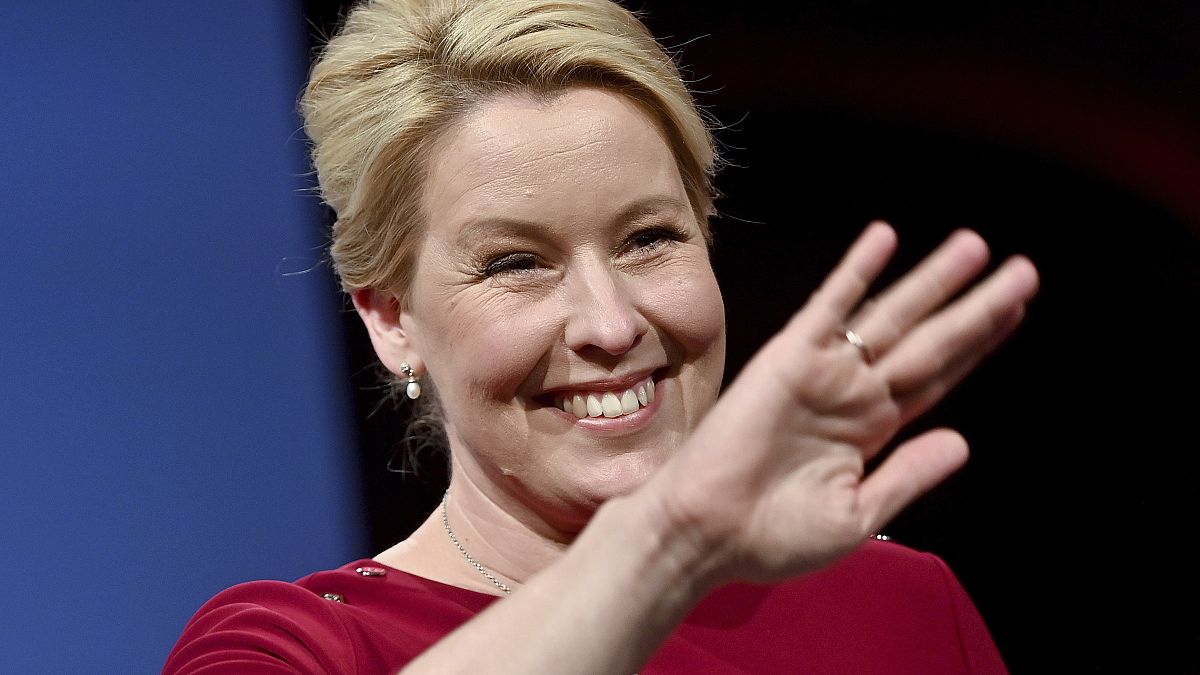One of the biggest issues on Giffey's agenda is housing after a majority of Berliners voted to expropriate corporate owners from about 240,000 flats.
Franziska Giffey looks set to become Berlin's first female mayor after the Social Democrats retained their hold over the German capital.
The centre-left SPD, which also won the most votes in Sunday's federal parliamentary election, is projected to have won 21.4% of ballots in the city-state, according to preliminary results.
The Green party came in second with 18.9% while the Christian Democrats (CDU) came a close third with 18.1% of the vote.
The incumbent SPD-led coalition in the local government included the Greens and The Left (Die Linke) — which fell from third place in the last election to fourth with 14% this time around — and was helmed by SPD mayor Michael Mueller.
But Mueller decided not to contest the election and was replaced by Giffey.
The 43-year-old is a former family minister. She stepped down from the position in May over a plagiarism scandal.
She told regional public radio RBB on Monday morning that she would start discussions with the Greens but also with the CDU in order to form a stable majority to lead the capital.
One of the biggest issues on her agenda going forward will be housing.
A controversial proposal for the city government to take over about 240,000 apartments worth billions from corporate owners to curb sharply rising rents in the German capital was approved by 56.4% of voters in a referendum on Sunday, according to preliminary results.
The nonbinding referendum forces the Berlin city government to consider expropriating big, corporate landlords in a radical move to cool one of Germany’s hottest real estate markets, where rents have become unaffordable for many residents in recent years.
The proposal would affect about 15% of rented apartments in Berlin.
Rents in the German capital rose by an average of 85% between 2007 and 2019, but remain well below those of London or Paris.
Still, the increase is strangling many people in the city where 80% of residents are tenants, and where the at-risk-of-poverty rate (people living on less than 60% of the median income) is 19.3%, compared to 15.9% in the country as a whole.
Giffey reiterated on Monday that she was opposed to this transfer of property, arguing that it was "not the right way", particularly because of the compensation to be provided.
But some of the Greens are in favour and the representatives of the initiative known as Expropriate Deutsche Wohnen & Co, which has lobbied for the measure since 2019, said they would put pressure on the coalition talks for Berlin's government to implement the measure.


